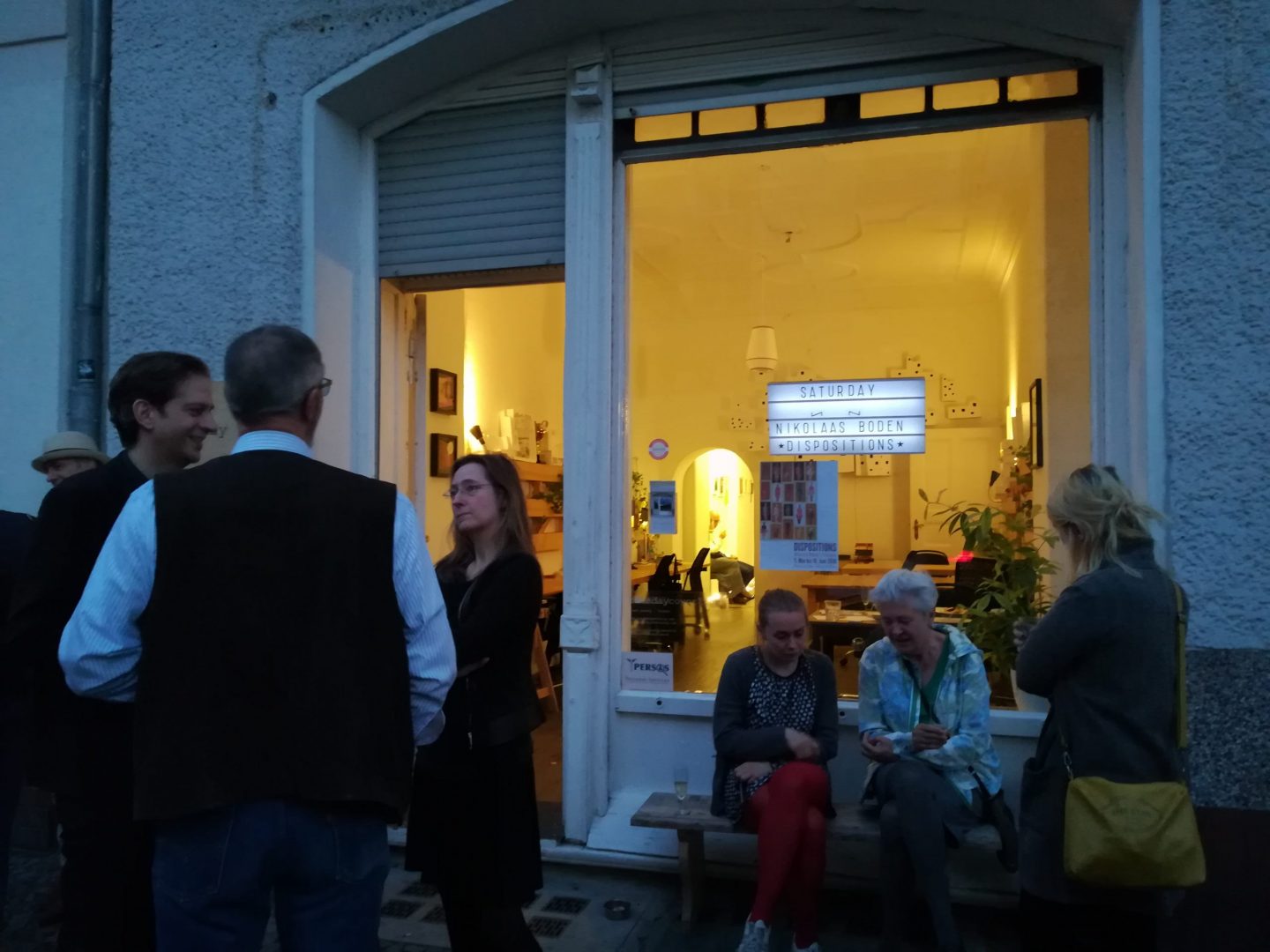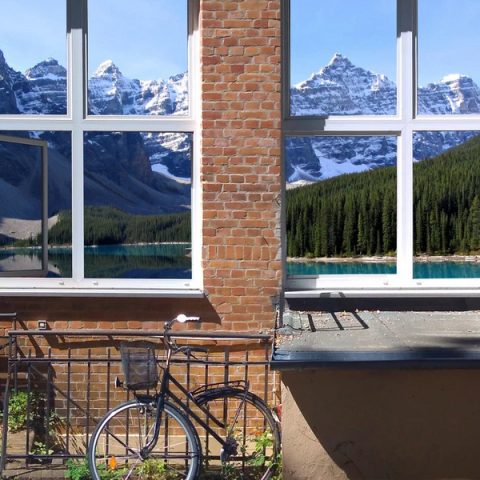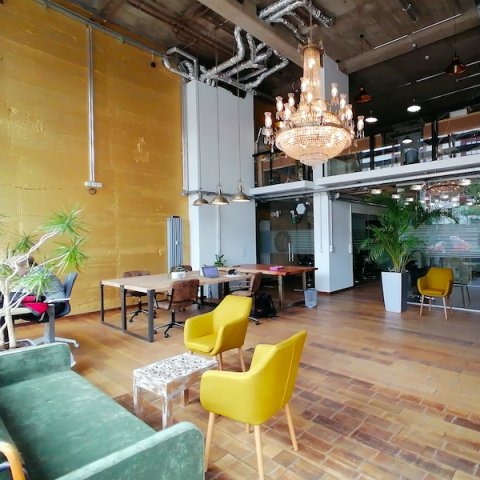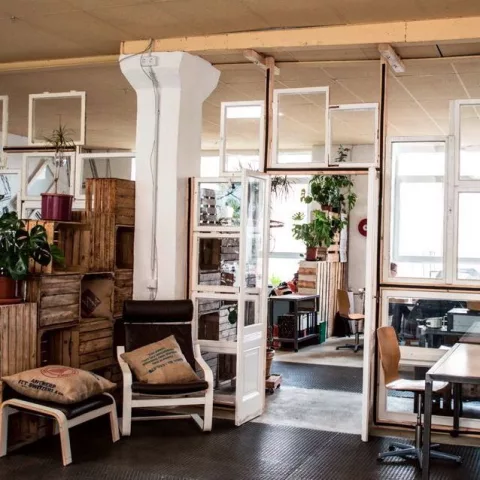
I was recently asked to answer some questions about the coworking scene in Berlin by www.thelocal.de and thought I might share it here with you:
- How would you characterise the coworking scene in Berlin? When did things really kick off in the city and what makes it so dynamic here?
Berlin’s coworking scene has something for everyone, I would say. Be it maker spaces, blockchain spaces (someone explain blockchain to me), spaces with childcare, spaces for bloggers or more artsy, cultural spaces like ours. You won’t be found wanting for a space that suits your style or your budget. With there not being much of a barrier to entry when it comes to setting up a space (pretty much anyone could start one provided the finances are there (whether they’re successful or not is another question), spaces started popping up all over the place about three or four years ago when operators caught on to the fact that people didn’t really want to travel halfway across the city to start their freelance work day and that local coworking spaces could thrive in pretty much any part of town.
- Do you see coworking as a business or as a community? What kind of values drive tuesday coworking? How is it different from global brands like We Work or local ones like Betahaus?
It depends on what your definition of coworking is. You get plenty of shared offices calling themselves coworking now. But I think the term “coworking space” refers to a mix between a shared office and a curated serviced office which offers opportunities to connect, grow and learn. Charging something for this added value as a business model doesn’t need to exclude having a community. It’s not really an “either/or” for me.
With that in mind, tuesday coworking sees its value in offering a range of cultural and educational events, like our monthly artist talks “Tell It! Tuesdays”, exhibitions and meditation workshops, where people get something more out of their memberships. These are pretty standard for most coworking spaces. I think that Betahaus has infinitely more to offer than the more perhaps more luxurious WeWork, but at the end of the day, it all comes down to workplace comfort. To where you as a member feel most comfortable.
- Who does coworking most appeal to? Is there a ‘typical’ user of your spaces in Berlin? Are people still confused by the concept?
I had to explain the term again a few days ago at our last exhibition opening. But that hasn’t happened in a while. So, no, I wouldn’t say confusion reigns. Not so much as with Blockchain anyway. Won’t someone please explain Blockchain to me?!
Typical users are freelancers who can’t resist doing the laundry when they’re at home. Or those who have no self-control over the mouse when they see a cat video. Those who need some kind of regimentation or an environment where you can go and get infected by the productivity that’s happening around you. Procrastinators you could call them. Coworking appeals to no-longer-wannabe-procrastinators… That and like a million other types of people. Seriously, plumbers need to do their taxes at some stage too.
Y’know.
- Has there been a cultural shift towards flexible work and community – in Berlin, in Germany?
Based on the increase in the number of people sending us requests for free trial days via the new website (www.tuesdaycoworking.com 😉 ), I would say there is a shift towards “new work”, yes, towards not putting up with shitty uninspiring offices. You see it not only with coworking, but in a lot of company offices moving away from cubicles, tables and chairs to high tables, stools, couches and an altogether more casual approach to workspace design. It makes sense, if you’re sitting at the same desk all day, you’re not exactly going to feel very inspired, are you.
- Have you been surprised by the difficulties We Work has run into in the past weeks?
The things that have come to light since submitting their IPO paper made you question some people’s grasp on reality. So it’s a bit of a shock alright, but not one I feel particularly sad about. I feel sad for the redundancies that are about to be made due to one man’s megalomania. I guess, it reflects what investors have learned from Uber and Lyft, so there is at least progress in a sense that blind belief in the value of something won’t quite hack it anymore. That’s what I think about WeWork. But you might as well ask a local Ma and Pa’s pizzeria what their take on McDonald’s is. Not really the same thing.
- What is the future of coworking – how do you imagine the industry will change in the next few years – will more people become coworkers, will demand plateau?
That’s a good question. And it’s very hard for me to answer it well. Without any certainty at all, I can see bigger players potentially coming in and buying up smaller providers (you saw it recently with the purchase of Ahoy! Berlin by Knotel – themselves hot on the heels of WeWork).
All in all, it’s hard to predict what will happen with coworking. You could look at what happened to Internet cafés. They died a death fairly swiftly and it might also just be a matter of time before a provider or a city comes along and offers coworking for free. Indeed it’s already happening in some cities. So if you want to stay relevant in the coworking “game”, I think you need to diversify. Spread out the portfolio a bit and collaborate with others. I only recently heard the expression: “If you want to go fast, go alone. If you want to go far, go together”. It stuck with me and I’m looking at widening our market appeal by offering different services through collaborations with other spaces.
But even if we don’t do that, I think there will still be a market for smaller independent spaces (like tuesday!), who offer something else compared to the giants, something different, because the world would be a very boring place indeed if we all liked the same things.




